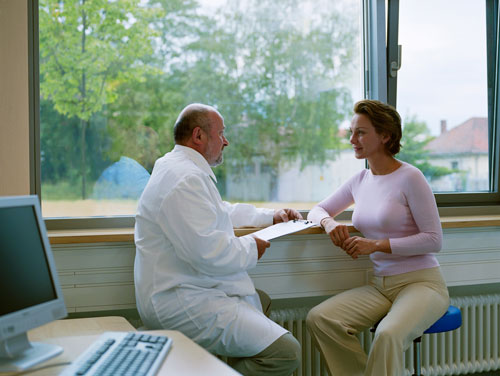Infection Control - Keeping You Safe During Oral Surgery
Posted on 9/2/2024 by Surprise Oral & Implant Surgery |
 When you think of oral surgery, you probably think about the procedure itself: the extraction of a wisdom tooth, the placement of a dental implant, or the removal of a tumor. But what you might not think about is the meticulous infection control measures that are taken before, during, and after surgery to protect your health. When you think of oral surgery, you probably think about the procedure itself: the extraction of a wisdom tooth, the placement of a dental implant, or the removal of a tumor. But what you might not think about is the meticulous infection control measures that are taken before, during, and after surgery to protect your health.
Infections are a potential risk with any surgical procedure, including oral surgery. But at our practice, we take infection control very seriously and have implemented rigorous protocols to minimize this risk.
What We Do to Prevent Infections
Our commitment to infection control starts with our staff. Every member of our team, from the surgeons to the assistants and hygienists, receives extensive training in infection control procedures. We follow strict guidelines set by the Centers for Disease Control and Prevention (CDC) and the Occupational Safety and Health Administration (OSHA) to ensure a safe environment for both patients and staff.
Here are some of the specific measures we take to prevent infections:
| • |
Hand Hygiene: Frequent and thorough handwashing is the single most important step in preventing the spread of infection. Our staff washes their hands before and after every patient contact, and we also provide hand sanitizer for patients to use.
|
| • |
Personal Protective Equipment (PPE): All staff members wear appropriate PPE, such as gloves, masks, and gowns, during all procedures. This helps to prevent the transmission of bacteria and viruses from staff to patients and vice versa.
|
| • |
Sterilization and Disinfection: All instruments and equipment used in surgery are sterilized or disinfected using high-level disinfectants. This ensures that no harmful microorganisms are present on the instruments that come into contact with patients.
|
| • |
Environmental Cleaning: All surfaces in the surgical suite are cleaned and disinfected regularly using hospital-grade disinfectants. This helps to prevent the spread of bacteria and viruses in the environment.
|
| • |
Patient Screening: Before surgery, patients are screened for any potential risk factors for infection, such as recent illness or compromised immune systems. This allows us to take additional precautions if necessary. |
What You Can Do to Prevent Infections
In addition to the measures we take, there are things you can do to help prevent infections after your oral surgery:
| • |
Follow your surgeon's instructions carefully. This includes taking all medications as prescribed, using mouthwash as directed, and avoiding certain activities such as smoking and strenuous exercise.
|
| • |
Maintain good oral hygiene. Brush and floss your teeth regularly, and be sure to rinse your mouth with an antiseptic mouthwash after surgery.
|
| • |
Report any signs of infection to your surgeon immediately. These signs may include fever, swelling, redness, pain, or pus drainage. |
Our Commitment to Your Safety
We understand that undergoing oral surgery can be a stressful experience. We want to assure you that we are committed to providing you with the safest possible care. By following strict infection control protocols, we can minimize the risk of infections and help you heal quickly.
If you have any questions or concerns about infection control, please do not hesitate to ask your surgeon or any member of our staff. We are here to help you understand the importance of infection control and how we are working to keep you safe. |
|
